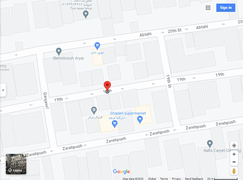Application of Biocompatible Scaffolds in Stem-Cell-Based Dental Tissue Engineering
Application of Biocompatible Scaffolds in Stem-Cell-Based Dental Tissue Engineering
However, the main focus of literature in the field of dental tissue engineering is on utilizing MSCs. On the other hand, biocompatible scaffolds play a notable role in this regenerative process which is mentioned to be harmless with acceptable osteoinductivity. Also, strategies of tissue bioengineering and experimental models are introduced in order to provide a perspective of the potential roles of dental tissue engineering to be used for clinical aims.
Critical roles of cytokine storm and bacterial infection in patients with COVID-19
Critical roles of cytokine storm and bacterial infection in patients with COVID-19
This virus can affect all systems of the body and its symptoms vary from a simple upper respiratory infection to fatal complications including end-organ damage. Secondary bacterial co-infection is another problem in COVID-19 which affects the prognosis of patients. Therefore, the therapeutic benefits of mesenchymal stem cells, especially their antimicrobial activity, will help us understand how to treat COVID-19. Herein, mesenchymal stem cells may stop the immune system from becoming overactive in COVID-19 patients.
Advancement of Organoid Technology in Regenerative Medicine
Advancement of Organoid Technology in Regenerative Medicine
To form organoids, stem cells are transplanted into the extracellular matrix. Organoids can help pave the road for precision medicine through genetic editing, pharmaceutical development, and cell therapy. Studies on the use of stem-cell-derived organoids in regenerative medicine, organoids as 3D culture models for EVs analysis, and organoids for precision medicine were included. Results: According to the included studies, organoids have various origins, types, and applications in regenerative and precision medicine, as well as an important role in studying extracellular vesicles.
Antioxidative hypoglycemic herbal medicines with in vivo and in vitro activity against C-reactive protein
Antioxidative hypoglycemic herbal medicines with in vivo and in vitro activity against C-reactive protein; a systematic review
Cancer Chemo-Preventive Effects of Red Propolis: a System Biology Approach
Cancer Chemo-Preventive Effects of Red Propolis: a System Biology Approach
Results: The results implied that six hub-bottlenecks including ACTB, GAPDH, HSP90AA1, HSPA8, HSP90AB1, and HSPA5 were present in the PPI network; however, only the last central protein was among DEPs. ClueGO CluePedia identified five related biological processes and three action types of their connections. Conclusion: The proposed crucial proteins and their linked biological processes may represent as key players in the anticancer underlying mechanism of red propolis.
A systematic study of nano-based fibrous systems: Diagnostic and therapeutic approaches for dementia control
A systematic study of nano-based fibrous systems: Diagnostic and therapeutic approaches for dementia control
Over the last few years, protein-based nanofibrous biomaterials have been used for better controlling dementia. PubMed, Scopus, and ISI Web of Science were consulted for available articles on nano-based fibrous systems for the treatment and diagnosis of dementia (up to October 2022). Eleven studies evaluated nanofibrous electrospun biomaterials for better dementia control. Additionally, four studies inspected stem cell (SC) transplantation on nano-based fibrous scaffolds for better treatment of dementia. Finally, two from the final four studies considered nano-based fibrous systems for the enhanced treatment of dementia.
Ramadan fasting and type 1 diabetes: A scoping review protocol
Ramadan fasting and type 1 diabetes: A scoping review protocol
Many patients with type 1 diabetes fast during Ramadan according to (or against) medical and jurisprudence advice. The current scoping review protocol aims at systematic analysis and mapping of existing literature in the field and highlighting scientific gaps. Considering the fact that Ramadan Fasting is a cultural-dependent subject, which may be studied in the Middle Eastern and Islamic Countries in languages other than English, local Persian and Arabic Databases will also be included.
Onion Extract on Cell Gene Expression Profile: a System Biology Approach
Onion Extract on Cell Gene Expression Profile: a System Biology Approach
Assessment of molecular mechanism of yellow onion extract on cell line Caco-2 was the aim of this study. The gene expression profiles of Caco-2 cells in the presence of yellow onion extract versus control cells were analyzed via GOE2R software. The significant differentially expressed genes (DEGs) were assessed via network analysis and the central nodes were enriched via gene ontology. Results: Thirteen central nodes including JUN, ATF3, DUSP1 VEGF, CDKN1A, SNAI1, HSPB1, MCL1, SQSTM1, SREBF1, MAP1LC3B, EZR, and DUSP5 were identified.
Investigation of Crucial Affected Proteins in Rat Liver in the Presence of Scrophularia
Abstract Background and objectives: Radix Scropholaria is dried root Scrophularia ningpoensis Hemsl. which is used uses as a drug against several diseases. In the present study, the crucial affected proteins of rat liver in the presence of radix Scrophularia have been investigated. Methods: The differentially expressed proteins (DEPs) were downloaded from literature. The significant DEPs plus 100 added first neighbors were determined and included in
Safety and feasibility study of ex vivo expanded allogeneic-NK cells infusion in patients with acute pneumonia caused by COVID-19
Infusion of allogeneic NK cells might be a complementary treatment to boost immune system function in COVID-19 patients. In this project, we focused on COVID-19 patients with low inspiratory capacity (LIC). This project aims to evaluate the feasibility and safety of allogeneic NK cell infusion as an intervention for respiratory viral disease. Methods: A non-blind two arms pilot study was designed and conducted after signing the consent form. Ten matched patients, in terms of vital signs and clinical features, were enrolled in the control and intervention groups.












